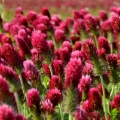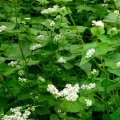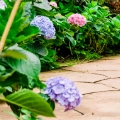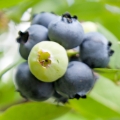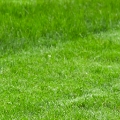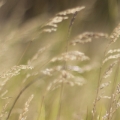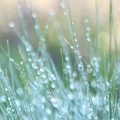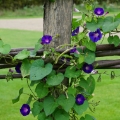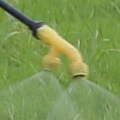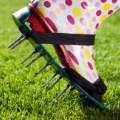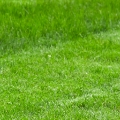
Clover Basics:
Clover needs water, sun and lime (in most soil) for good germination. Clover gets its phosphate and potash from the soil and its nitrogen from the air through a bacterium that lives on its roots. Lime is necessary to bring the pH of the soil up to the neutral range (6.0 to 7.0 for the best performance). On acid forest soil (especially in acid acid rain areas), clover simply will not grow without lime. Lime will also release phosphate and potash from dark forest soils reducing the need for fertilizer. To ensure successful planting with clover seed, get a soil test to check the pH of your soil. This will enable you to utilize the proper amount of lime for best germination and establishment.
Clover is a hardy plant and can thrive in most soils (sandy loams to clay) and conditions that range from full sun to partial shade. Plant clover in the spring or early summer, when the ground has become soft and moist from the spring rains. You may also plant in September or early October in most locations. Clover seed is very small, so you may want to mix it with lime or fertilizer to give you more substance to work with. Do not use a strong fertilizer on clover, as it can burn the plant's thin roots.
Ground Preparation:
It is difficult to kill weeds out of clover since broad-leafed herbicides will kill the clover as well. Due to this fact, it is essential that competing vegetation be killed before planting. If you must till or plow the soil before planting, be sure you wait 4 to 6 weeks for new weeds to emerge so you can kill them before planting the clover seed.
You may also use the no-till method. Mow or burn off existing vegetation in spring, wait for green-up so those perennial weeds and seeds emerge, then spray with Roundup (Monsanto) or another total herbicide to kill all existing vegetation. Wait for it to turn brown then lime (if necessary) and seed. The dead thatch will provide all the cover needed for the seed. We recommended spraying the area with our LazyMan Liquid Gold or Lazyman Soil Doctor to break down existing thatch and to aerate the soil. This will help in seed germination and establishment.
If you are planting a small area, kill off all living vegetation and simply rake the ground and remove any debris and large obstacles, such as big rocks. Scatter the seed mixture lightly on top of the loosened soil at the recommended seeding rate per package directions. Water lightly, but not so heavily that the seeds are washed away. Keep the planting area moist until the seeds germinate and the clover is established.
Sun:
Clover will grow in light shade, but not very fast. You may want to double your seeding rates if planting in light shade. Clover will not fair well at all in dense shade and is not recommended. If possible, cut back brush, trees, etc. to all the clover to receive 4 to 6 hours of sunlight a day.
Water:
At time of seeding it is critical that new seeds are kept moist as much as possible. In optimum growing conditions, the seed never dries out in between waterings. After clover establishment, it generally needs approximately 30 inches of rain a year to be productive and 45 inches or more is optimum. Most clovers will tolerate poorly drained soils, but no clover will grow where water stands for weeks at a time. It will thin out and eventually die if there is no soil drainage.
Seeding:
Clover seed is very small so a little goes a long way. It should be spread with a broadcast type spreader. As mentioned earlier, you may want to mix the clover seed with lime or low nitrogen fertilizer to give you more substance to work with. Clover seed planted deeper then 1/4 inch in the soil may not emerge; therefore, ensure the clover seed is spread on the surface or just lightly raked in to the soil.
Planting Time:
Plant in spring when frost season is completely over and night time temperatures are staying in the 40's or warmer. You may plant clear up to late summer/early fall at least 6 weeks before a heavy freeze. In the south where snow and freezing temperatures are rare, you may plant all through the winter. If you plant when temperatures are warm, clover seeds will germinate in 7 - 15 days.


